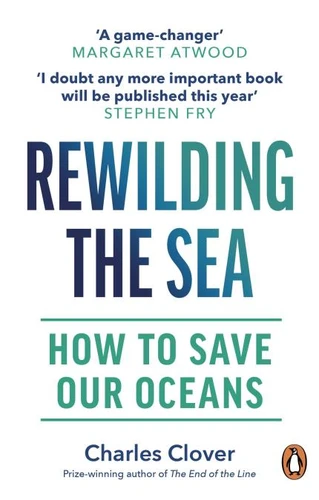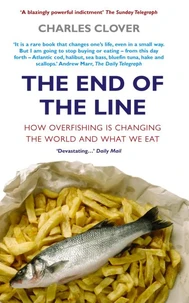Rewilding the Sea. How to Save our Oceans
Par :Formats :
Disponible dans votre compte client Decitre ou Furet du Nord dès validation de votre commande. Le format ePub protégé est :
- Compatible avec une lecture sur My Vivlio (smartphone, tablette, ordinateur)
- Compatible avec une lecture sur liseuses Vivlio
- Pour les liseuses autres que Vivlio, vous devez utiliser le logiciel Adobe Digital Edition. Non compatible avec la lecture sur les liseuses Kindle, Remarkable et Sony
- Non compatible avec un achat hors France métropolitaine
 , qui est-ce ?
, qui est-ce ?Notre partenaire de plateforme de lecture numérique où vous retrouverez l'ensemble de vos ebooks gratuitement
Pour en savoir plus sur nos ebooks, consultez notre aide en ligne ici
- Nombre de pages288
- FormatePub
- ISBN978-1-4735-9846-1
- EAN9781473598461
- Date de parution09/06/2022
- Protection num.Adobe DRM
- Infos supplémentairesepub
- ÉditeurEbury Digital
Résumé
**SHORTLISTED FOR THE 2023 WAINWRIGHT PRIZE**'Desperately needed' - Isabella Tree'I doubt any more important book will published this year' - Stephen FryIn this indispensable follow up to his acclaimed The End of the Line: How Overfishing is Changing the World, Charles Clover chronicles how determined individuals are proving that the crisis in our oceans can be reversed, with benefits for both local communities and entire ecosystems.
Rewilding the Sea celebrates what happens when we step aside and let nature repair the damage: whether it is the overfishing of bluefin tuna across the Atlantic, the destruction of coral gardens by dredgers in Lyme Bay or the restoration of oysters on the East Coast of America. The latest scientific research shows that trawling and dredging create more CO2 than the aviation industry and damage vast areas of our continental shelves, stopping them soaking up carbon.
We need to fish in different ways, where we fish at all. We can store carbon and have more fish by stepping aside more often and trusting nature. Essential and revelatory, Rewilding the Sea propels us to rethink our relationship with nature and reveals that saving our oceans is easier than we think.
Rewilding the Sea celebrates what happens when we step aside and let nature repair the damage: whether it is the overfishing of bluefin tuna across the Atlantic, the destruction of coral gardens by dredgers in Lyme Bay or the restoration of oysters on the East Coast of America. The latest scientific research shows that trawling and dredging create more CO2 than the aviation industry and damage vast areas of our continental shelves, stopping them soaking up carbon.
We need to fish in different ways, where we fish at all. We can store carbon and have more fish by stepping aside more often and trusting nature. Essential and revelatory, Rewilding the Sea propels us to rethink our relationship with nature and reveals that saving our oceans is easier than we think.
**SHORTLISTED FOR THE 2023 WAINWRIGHT PRIZE**'Desperately needed' - Isabella Tree'I doubt any more important book will published this year' - Stephen FryIn this indispensable follow up to his acclaimed The End of the Line: How Overfishing is Changing the World, Charles Clover chronicles how determined individuals are proving that the crisis in our oceans can be reversed, with benefits for both local communities and entire ecosystems.
Rewilding the Sea celebrates what happens when we step aside and let nature repair the damage: whether it is the overfishing of bluefin tuna across the Atlantic, the destruction of coral gardens by dredgers in Lyme Bay or the restoration of oysters on the East Coast of America. The latest scientific research shows that trawling and dredging create more CO2 than the aviation industry and damage vast areas of our continental shelves, stopping them soaking up carbon.
We need to fish in different ways, where we fish at all. We can store carbon and have more fish by stepping aside more often and trusting nature. Essential and revelatory, Rewilding the Sea propels us to rethink our relationship with nature and reveals that saving our oceans is easier than we think.
Rewilding the Sea celebrates what happens when we step aside and let nature repair the damage: whether it is the overfishing of bluefin tuna across the Atlantic, the destruction of coral gardens by dredgers in Lyme Bay or the restoration of oysters on the East Coast of America. The latest scientific research shows that trawling and dredging create more CO2 than the aviation industry and damage vast areas of our continental shelves, stopping them soaking up carbon.
We need to fish in different ways, where we fish at all. We can store carbon and have more fish by stepping aside more often and trusting nature. Essential and revelatory, Rewilding the Sea propels us to rethink our relationship with nature and reveals that saving our oceans is easier than we think.




